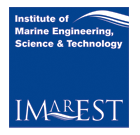 The expensive business of marine failures comes under the conference spotlight next month when the 3rd IMarEST Prevention of Marine Failures Conference.
The expensive business of marine failures comes under the conference spotlight next month when the 3rd IMarEST Prevention of Marine Failures Conference.
Held in the City of London on 25 and 26 February, the conference will see keynote speaker, Richard Vie FIMarEST, Vice President Technical Development and Quality Assurance, Corporate Shipbuilding, Carnival Corporation & plc., President Elect IMarEST explain, that the important element is the ‘hidden costs’: “Once any regulatory requirements have been satisfied, in comparing the costs of different design solutions for ship’s systems be they structural, mechanical, electrical/electronic or human the possibility of the risk of failure is often assumed to be accounted for by the cost of insurance.
“However, the actual costs of a lack of ship availability either partially or wholly or worse any loss of life or serious injury extend beyond this. The ship owner and/or operator may well lose customer revenue and customers through loss of confidence in the service offered or the actual unavailability of the ship.
“Serious pollution incidents can damage reputation and result in expenditure beyond the direct clean-up costs, ” he adds. “Such costs tend to be hidden, and not taken in to account when assessing different ship design options and how they affect not only the cost of the ship but the benefit they can bring in terms of reducing the financial consequences of failure.”
Richard Vie, speaking on the opening morning of the conference, will provide some examples of these types of hidden costs and describe an approach that can be taken to develop and record ship design principles and options to mitigate against them and to justify their incorporation in both new and existing ship designs.
Highly relevant two days
Chaired by Professor John Carlton FREng, FIMarEST, Professor of Marine Engineering, City University London, a Past President of IMarEST and organised by the Institute of Marine Engineering, Science and Technology (IMarEST), the conference, being held at 71 Fenchurch Street, in the heart of the City of London, has ‘Avoiding the cost of failure’ as its theme and has international delegates registered from Bahrain, Gambia, Norway, The Netherlands and UK already registered.
Following Richard Vie’s keynote address sessions on structural failure, mechanical failure, systems failures and human failure then span the two days. Topics in the structural failure session include ‘Failure prevention through good design’; ‘Understanding weak spots in hull structures’; ‘Developments in preventing fatigue on large ship structures’; ‘Recent marine failure investigations’; ‘Cryogenic material failures’ and ‘Ultimate strength of ship structures and designing for plastic collapse’.
This is followed on the first day by the mechanical failure session in which there will be presentations on ‘Minimising the dangers of microbial infestation’; ‘Micro emulsion – a technology for cutting the risk of cat-fines damage’; and ‘Cavitation erosion fracture mechanics’.
The second day opens with the systems failures session featuring presentations on ‘Risk management: Assessment of the risk of failure occurring’; ‘Approaches to systems based computer failures and integrity assurance of computer based systems for ships’; ‘Electrical systems failures’; and ‘Role of the organisational culture in failures’. And the conference ends with two presentations on human failures – ‘Failure through fatigue’ and ‘The role of simulators within the Irish Naval Service’.
Networking, as at all IMarEST events, plays an important role in the Marine Failures conference with a reception at the end of the first day as well as a sensible amount of networking time first thing on both mornings and at coffee, lunch and tea breaks throughout the two days.
About the IMarEST
The Institute of Marine Engineering, Science and Technology (IMarEST) is the leading international membership body and learned society for all marine professionals. The IMarEST is the first Institute to bring together marine engineers, scientists and technologists into one international multi-disciplinary professional body. It is the largest marine organisation of its kind with a worldwide membership of 15, 000 based in over 100 countries.
Working with the global marine community, the IMarEST promotes the scientific development of marine engineering, science and technology, providing opportunities for the exchange of ideas and practices and upholding the status, standards and expertise of marine professionals worldwide.
The IMarEST is a respected authority in every maritime country. It is a Non-Governmental Organisation with consultative status at the International Maritime Organization (IMO), observer status at the International Oceanographic Commission, and it has special consultative status with the Economic and Social Council of the United Nations (ECOSOC), which facilitates its access to other international intergovernmental meetings where its specialized marine expertise is of particular use, e.g., the United Nations meetings on Areas Beyond National Jurisdiction, the Intergovernmental Panel for Climate Change (IPCC) and the work of the International Seabed Authority on marine mining. It is a nominated and licensed body of the Engineering Council (UK), a member of the Science Council and has significant links with many other maritime organisations worldwide.
IMarEST also runs a series of industry leading events and conferences as well as publishing internationally recognised titles: Marine Engineers Review (MER); Shipping World and Shipbuilder; Maritime IT and Electronics; Marine Scientist; and Offshore Technology.





